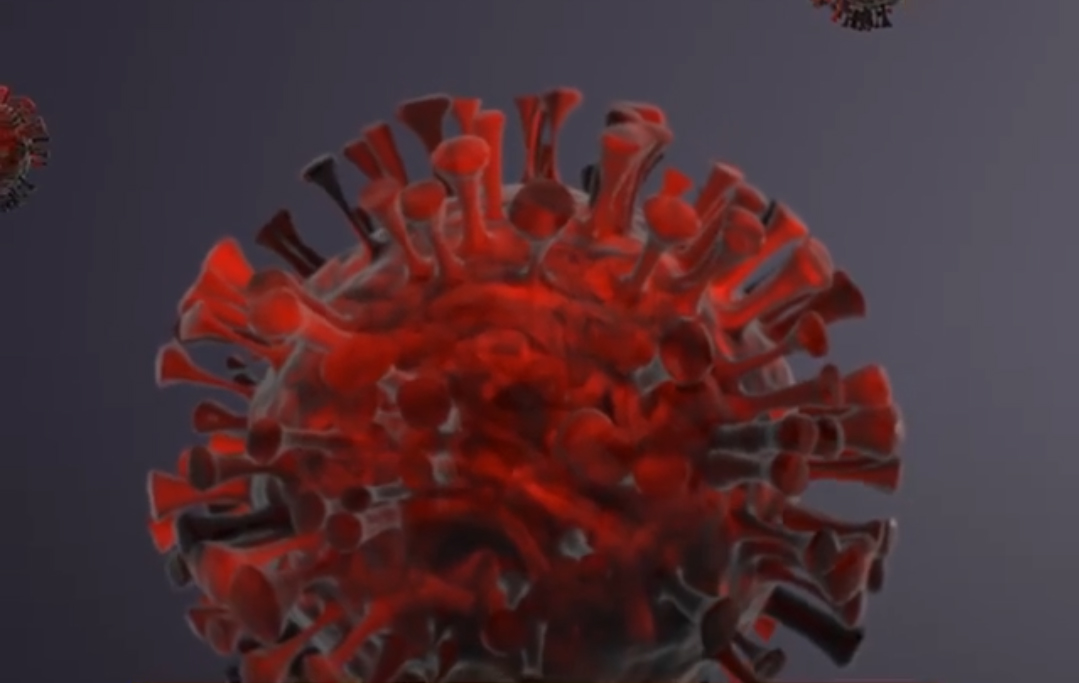Stress and Coping with COVID-19

The outbreak of coronavirus disease 2019 (COVID-19) may be stressful for people. Fear and anxiety about a disease can be overwhelming and cause strong emotions in adults and children. Coping with stress will make you, the people you care about, and your community stronger.
Everyone reacts differently to stressful situations. How you respond to the outbreak can depend on your background, the things that make you different from other people, and the community you live in.
People who may respond more strongly to the stress of a crisis include:
- Older people and people with chronic diseases who are at higher risk for COVID-19
- Children and teens
- People who are helping with the response to COVID-19, like doctors and other health care providers, or first responders
- People who have mental health conditions including problems with substance use
Stress during an infectious disease outbreak can include
- Fear and worry about your own health and the health of your loved ones
- Changes in sleep or eating patterns
- Difficulty sleeping or concentrating
- Worsening of chronic health problems
- Increased use of alcohol, tobacco, or other drugs
Things you can do to support yourself
- Take breaks from watching, reading, or listening to news stories, including social media. Hearing about the pandemic repeatedly can be upsetting.
- Take care of your body. Take deep breaths, stretch, or meditate. Try to eat healthy, well-balanced meals, exercise regularly, get plenty of sleep, and avoid alcohol and drugs.
- Make time to unwind. Try to do some other activities you enjoy.
- Connect with others. Talk with people you trust about your concerns and how you are feeling.
Anxiety and obsessive-compulsive disorders
- Worry about getting an infection, worry about loved ones getting ill, and worry when related symptoms—even minor—are present. The absence of a definitive treatment for coronavirus easily exacerbates anxiety.
- Contamination obsessions—unwanted, intrusive worry that one is dirty and in need of washing, cleaning, or sterilizing—are very common in patients with OCD. Perceptual experiences (eg, feeling dirt on skin) understandably would amplify obsessions. More intense sensory experiences (pseudo-hallucinations) are related to worsened control over compulsions and poorer insight. Biased information processing is associated with a tendency to overestimate threat in individuals with OCD. This may increase sensitivity to the panic associated with pandemic threats and further destabilize patients and increase functional impairment.
- Cleaning and washing compulsions, also a core feature of OCD, can easily be exacerbated by the threat of infectious pandemics. Complications of excessive cleaning include dry, chapped skin (which can lead to super-imposed infections). and contact and atopic dermatitis; similarly, overuse of toxic cleaning supplies can lead to inhalational injuries. Fear of acquiring a new, sensationalized disease may worsen negative behaviors. Clinicians in psychiatry, psycho-dermatology, and primary care practices should be alert to potential issues in patients with OCD.
- The current COVID-19 outbreak is spurring fear on a societal level. On an individual level, it may differentially exacerbate anxiety and psychosis-like symptoms as well as lead to non-specific mental issues (eg, mood problems, sleep issues, phobia-like behaviors, panic-like symptoms).
Reduce stress in yourself and others
Sharing the facts about COVID-19 and understanding the actual risk to yourself and people you care about can make an outbreak less stressful..
When you share accurate information about COVID-19 you can help make people feel less stressed and allow you to connect with them.
Taking Care of Emotional Health
It is natural to feel stress, anxiety, grief, and worry during and after a disaster. Everyone reacts differently, and your own feelings will change over time. Notice and accept how you feel. Taking care of your emotional health during an emergency will help you think clearly and react to the urgent needs to protect yourself and your family. Self-care during an emergency will help your long-term healing.
Take the following steps to cope with a disaster:
- Take care of your body– Try to eat healthy well-balanced meals, exercise regularly, and get plenty of sleep. Avoid alcohol, tobacco, and other drugs.
- Connect with others– Share your concerns and how you are feeling with a friend or family member. Maintain healthy relationships, and build a strong support system.
- Take breaks– Make time to unwind and remind yourself that strong feelings will fade. Try taking in deep breaths. Try to do activities you usually enjoy.
- Stay informed– When you feel that you are missing information, you may become more stressed or nervous. Watch, listen to, or read the news for updates from officials. Be aware that there may be rumors during a crisis, especially on social media. Always check your sources and turn to reliable sources of information like your government authorities.
- Avoid too much exposure to news– Take breaks from watching, reading, or listening to news stories. It can be upsetting to hear about the crisis and see images repeatedly. Try to do enjoyable activities and return to normal life as much as possible and check for updates between breaks.
- Seek help when needed– If distress impacts activities of your daily life for several days or weeks, talk to a clergy member, counselor, or doctor
Look out for these common signs of distress:
- Feelings of numbness, disbelief, anxiety or fear.
- Changes in appetite, energy, and activity levels.
- Difficulty concentrating.
- Difficulty sleeping or nightmares and upsetting thoughts and images.
- Physical reactions, such as headaches, body pains, stomach problems, and skin rashes.
- Worsening of chronic health problems.
- Anger or short-temper.
- Increased use of alcohol, tobacco, or other drugs.
Behavioral Health During an Infectious Disease Outbreak
Social distancing, quarantine, and isolation during an infectious disease outbreak
What Is Social Distancing?
Social distancing is a way to keep people from interacting closely or frequently enough to spread an infectious disease. Schools and other gathering places such as movie theaters may close, and sports events and religious services may be cancelled.
What Is Quarantine?
Quarantine separates and restricts the movement of people who have been exposed to a contagious disease to see if they become sick. It lasts long enough to ensure the person has not contracted an infectious disease.
What Is Isolation?
Isolation prevents the spread of an infectious disease by separating people who are sick from those who are not. It lasts as long as the disease is contagious.
What To Expect: Typical Reactions
Everyone reacts differently to stressful situations such as an infectious disease outbreak that requires social distancing, quarantine, or isolation. People may feel:
- Anxiety, worry, or fear related to:
- Your own health status
- The health status of others whom you may have exposed to the disease The resentment that your friends and family may feel if they need to go into quarantine as a result of contact with you
- he experience of monitoring yourself, or being monitored by others for signs and symptoms of the disease
- Time taken off from work and the potential loss of income and job security
- The challenges of securing things you need, such as groceries and personal care items
- Concern about being able to effectively care for children or others in your care
- Uncertainty or frustration about how long you will need to remain in this situation, and uncertainty about the future
- associated with feeling cut off from the world and from loved ones
- if you think you were exposed to the disease because of others’ negligence
- Boredom and frustration because you may not be able to work or engage in regular day-to-day activities
- Uncertainty or ambivalence about the situation
- A desire to use alcohol or drugs to cope
- Symptoms of depression, such as feelings of hopelessness, changes in appetite, or sleeping too little or too much
- Symptoms of post-traumatic stress disorder (PTSD), such as intrusive distressing memories, flashbacks (reliving the event), nightmares, changes in thoughts and mood, and being easily startled
For parents
Children and teens react, in part, on what they see from the adults around them. When parents and caregivers deal with the COVID-19 calmly and confidently, they can provide the best support for their children. Parents can be more reassuring to others around them, especially children, if they are better prepared.
Not all children and teens respond to stress in the same way. Some common changes to watch for include:
- Excessive crying or irritation in younger children
- Returning to behaviors they have outgrown (for example, toileting accidents or bedwetting)
- Excessive worry or sadness
- Unhealthy eating or sleeping habits
- Irritability and “acting out” behaviors in teens
- Poor school performance or avoiding school
- Difficulty with attention and concentration
- Avoidance of activities enjoyed in the past
- Unexplained headaches or body pain
- Use of alcohol, tobacco, or other drugs
There are many things you can do to support your child
- Take time to talk with your child or teen about the COVID-19 outbreak. Answer questions and share facts about COVID-19 in a way that your child or teen can understand.
- Reassure your child or teen that they are safe. Let them know it is ok if they feel upset. Share with them how you deal with your own stress so that they can learn how to cope from you.
- Limit your family’s exposure to news coverage of the event, including social media. Children may misinterpret what they hear and can be frightened about something they do not understand.
- Try to keep up with regular routines. If schools are closed, create a schedule for learning activities and relaxing or fun activities.
- Be a role model. Take breaks, get plenty of sleep, exercise, and eat well. Connect with your friends and family members..
Taking care of yourself during emergency response.
Responding to disasters is both rewarding and challenging work. Sources of stress for emergency responders may include witnessing human suffering, risk of personal harm, intense workloads, life-and-death decisions, and separation from family. Stress prevention and management is critical for responders to stay well and to continue to help in the situation. There are important steps responders should take before, during, and after an event. To take care of others, responders must be feeling well and thinking clearly.
Preparing for a Response:
- Try to learn as much as possible about what your role would be in a response.
- If you will be traveling or working long hours during a response, explain this to loved ones who may want to contact you. Come up with ways you may be able to communicate with them. Keep their expectations realistic, and take the pressure off yourself.
- Talk to your supervisor and establish a plan for who will fill any urgent ongoing work duties unrelated to the disaster while you are engaged in the response.
During a Response:
Responders experience stress during a crisis. When stress builds up it can cause:
- Burnout– feelings of extreme exhaustion and being overwhelmed.
- Secondary traumatic stress – stress reactions and symptoms resulting from exposure to another individual’s traumatic experiences, rather than from exposure directly to a traumatic event.
Coping techniques like taking breaks, eating healthy foods, and exercise can help prevent and reduce burnout and secondary traumatic stress.
Signs Of Burnout:
- Sadness, depression, or apathy
- Easily frustrated
- Blaming of others, irritability
- Lacking feelings, indifferent
- Isolation or disconnection from others
- Poor self-care (hygiene)
- Tired, exhausted or overwhelmed
- Feeling like:
- A failure
- Nothing you can do will help
- You are not doing your job well
- You need alcohol/other drugs to cope
Signs of Secondary Traumatic Stress
- Excessively worry or fear about something bad happening
- Easily startled, or “on guard” all of the time
- Physical signs of stress (e.g. racing heart)
- Nightmares or recurrent thoughts about the traumatic situation
- The feeling that others’ trauma is yours
For people who have been released from quarantine
Being separated from others if a healthcare provider thinks you may have been exposed to COVID-19 can be stressful, even if you do not get sick. Everyone feels differently after coming out of quarantine. Some feelings include:
- Mixed emotions, including relief after quarantine
- Fear and worry about your own health and the health of your loved ones
- Stress from the experience of monitoring yourself or being monitored by others for signs and symptoms of COVID-19
- Sadness, anger, or frustration because friends or loved ones have unfounded fears of contracting the disease from contact with you, even though you have been determined not to be contagious
- Guilt about not being able to perform normal work or parenting duties during quarantine
- Other emotional or mental health changes
Key facts are:
Know the facts about coronavirus disease 2019 (COVID-19) and help stop the spread of rumors.
Fact 1. Disease can make anyone sick regardless of their race or ethnicity:
Fear and anxiety about COVID-19 can cause people to avoid or reject others even though they are not at risk for spreading the virus.
Face2. For most people, the immediate risk of becominng seriously ill from the virus that causes COVID-19 is throught to be low.
Older adults and people of any age with underlying health conditions, such as diabetes, lungh disease, or heart disease, are at greater risk of servere illness from COVID-19.
Fact3. Someone who has completed quarantine or has been released from isolation does not pose a risk of infection to other people.
For up-to-date information, visit CDC’s coronavirus disease
Fact4. There are simple things you can do to help keep yourself and others healthy:
- Wash your hands often with soap and water for at least 20 seconds, especially after blowing your nose, coughing; or sneezing, going to the bathroom and before eating or preparing food.
- Avoid touching your eyes, nose, and mouth with unwashed hands.
- Stay home when you are sick.
- Cover your cough or sneeze with a tissue, then throw the tissue in the trash.
Fact5. You can help stop COVID-19 by knowing the signs and symptoms:
- Fever
- Cough
- Shortness of breath
- Seek medical advice if you
- Develop symptoms
- Have been in close contact with a person known to have COVID-19 or livein or have recently traveled from an area with ongoing spread of COVID-19.






Leave Comment